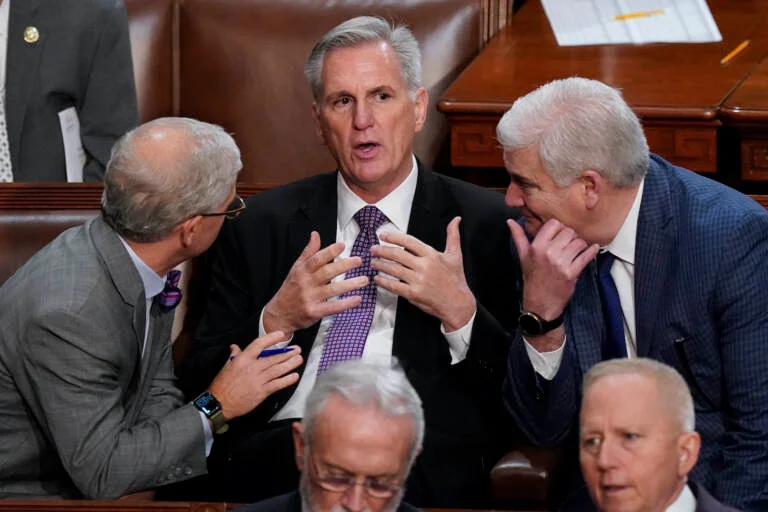On Wednesday, Republican U.S. House Speaker Kevin McCarthy rejected a Senate-advancing stopgap funding bill, edging Washington towards its fourth partial U.S. government shutdown in a decade, potentially occurring in just four days. This situation could result in the furlough of hundreds of thousands of federal workers and the suspension of numerous government services until Congress approves a funding bill that President Joe Biden would sign into law.
The Senate’s proposal, which received broad bipartisan support on Tuesday, aimed to fund the government until November 17, providing additional time for lawmakers to settle on funding levels for the entire fiscal year starting October 1. However, McCarthy’s House of Representatives has been concentrating on agreeing on more of the 12 separate full-year funding bills, with only one passed so far.
McCarthy expressed skepticism about the House supporting the Senate plan, despite it having the backing of Senate Republicans, including Minority Leader Mitch McConnell. He urged President Biden to intervene to prevent a government shutdown.
The House was anticipated to vote on amendments to specific funding bills late into the night. However, even if all four of those bills were signed into law by Saturday, they would not suffice to avert a partial government shutdown.
President Biden had previously called on Congress to pass a short-term extension of fiscal 2023 spending, along with emergency aid for state and local governments dealing with natural disasters and support for Ukraine in its conflict with Russia. He also requested additional border security funding.
The ongoing standoff has caught the attention of ratings agencies such as Moody’s and Fitch, which have warned of potential harm to the federal government’s credit-worthiness. House Republicans are advocating for stricter legislation to curb immigration at the U.S.-Mexico border and deeper spending cuts than those enacted in June.
Senate Majority Leader Chuck Schumer emphasized the necessity of bipartisanship to avoid a shutdown. The Senate’s bill also proposed approximately $6 billion for domestic disaster responses and an additional $6 billion in new aid to Ukraine.
McCarthy is under pressure from hardline members of his party, who have rejected a previously negotiated deal and are demanding further cuts. Some have even threatened McCarthy’s leadership role if he passes a spending bill requiring any Democratic votes.
House Republicans are likely to present their own stopgap measure on Friday, but it remains uncertain whether it will garner enough votes for passage in the House.
This financial impasse arises four months after Washington narrowly avoided defaulting on the nation’s over $31 trillion in debt, which would have had significant global repercussions. Another downgrade of the U.S. credit rating could elevate borrowing costs and further increase the nation’s debt.
Hardline Republicans, including 2024 presidential nomination frontrunner Donald Trump, have downplayed the risks of a shutdown, with some actively advocating for it. Representative Andy Ogles warned of upcoming turbulence following a closed-door meeting with fellow Republicans.

